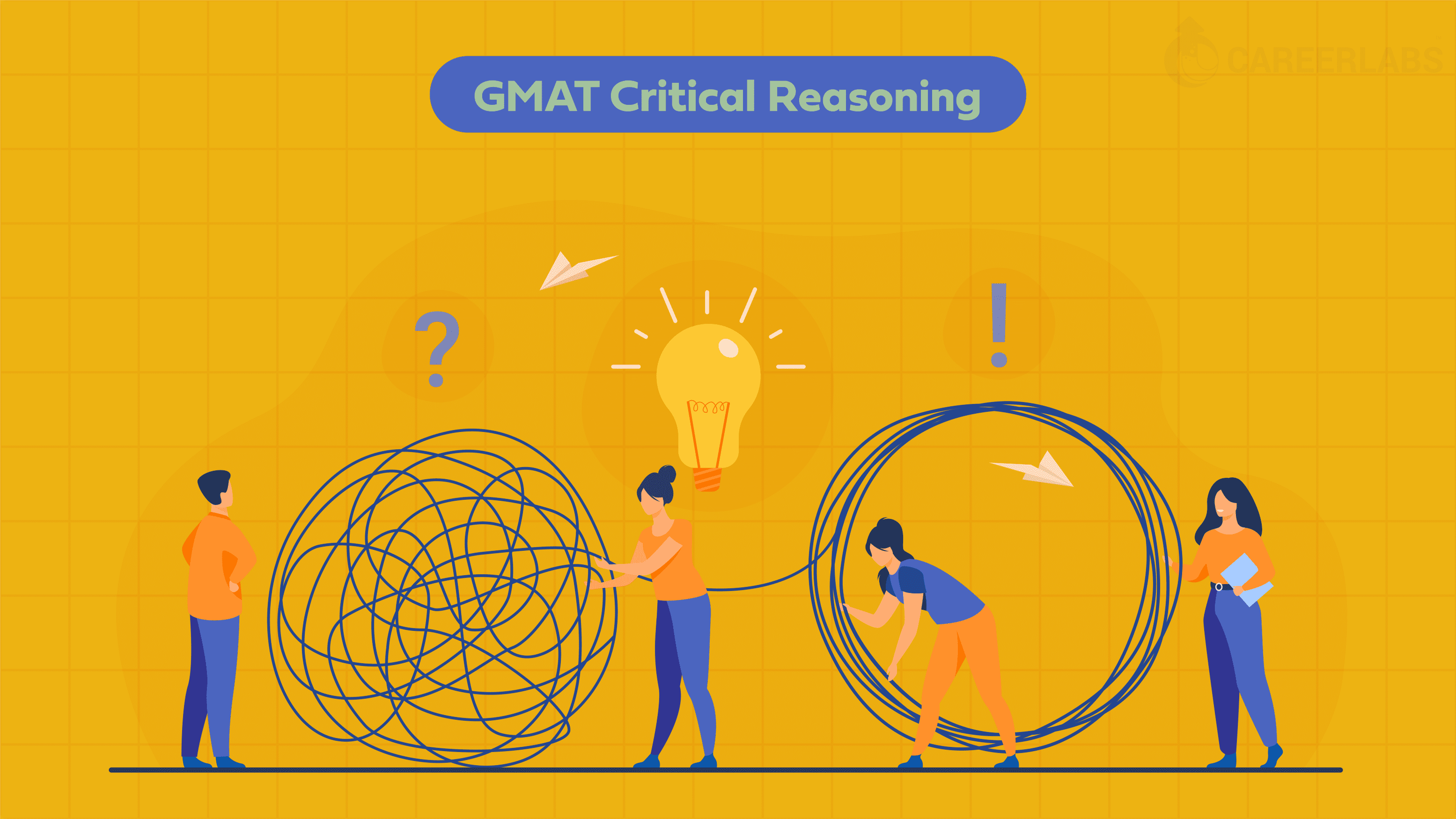The Critical Reasoning GMAT questions come under the Verbal section of the exam. It measures your ability to make and analyse arguments and formulate a plan of action. There may be upto 13 questions from Critical Reasoning which you will have to answer. These questions are based on a short passage that is mostly less than 100 words. Most often the passage comes with a question that asks you which of the given five answer options strengthens or weakens, damages or supports the argument and tells you why the given argument is flawed. In this article, we will tell you more about the critical reasoning questions asked in the exam and also provide some tips/strategies to answer these questions.
Types of Critical Reasoning Questions
There are about 11 question types. They are as follows:
- Strengthen the Argument: For these questions you will need to choose an answer that strengthens or further validates the author’s argument.
- Find the Assumption: You will have to choose the answer that is an assumption based on which the argument of the author relies on.
- Weaken the Argument: In this question type, you will need to pick an answer choice that weakens the argument of the author.
- Evaluate the Argument: You will be asked to choose an answer that would determine if the given argument has been constructed well or insufficiently.
- Inference: You will have to select an answer choice which has a conclusion (not written). It should be true only on the basis of the information which is present in the passage.
- Resolve a Paradox: You will be expected to choose an answer that has a fact that would resolve a situation that appears to be (but is not actually) paradoxical.
- Find the Conclusion: In this question type, you will need to choose an answer that has a conclusion which is best sustained by the given passage.
- Cause and Effect: Based on the cause and effect reasoning, these questions will expect you to strengthen, weaken or evaluate an argument.
- Logical Flaw: You will have to choose an answer that points out the fault in the author’s argument.
- Complete the Passage: This question type is a mixture of all the types of questions, you will be asked to choose the answer that completes an unfinished passage in the best manner.
- Bold Face and Method of Reasoning: You will be asked to evaluate the method in which a passage is structured or organised.
Three Different Components of a Critical Reasoning GMAT Question
The Critical Reasoning argument is usually constructed of three different components — assumption, facts/premise and a conclusion. It is essential that you understand how to recognise the different parts of an argument.
- Assumption: Assumptions are usually not stated explicitly in the passage. It is what the author has believed was true so that they could reach the conclusion. In other words, it is unwritten information that must be true for the argument to be valid.
- Premise: These are facts which support the author’s arguments and they are generally used to build up the argument. The premise is usually evidence that is given by the author of the passage to support his/her statements. It comes in the form of observations, statistics or results of certain scientific studies. Since these are statements or facts you must remember that any premise given in a critical reasoning passage is true.
- Conclusions: It is easier to identify the conclusion since there are some common keywords which you can look out for. Some of them are given below :
- Hence
- Consequently
- As a result
- Clearly
- Accordingly
- Thus
- Therefore
- It can be concluded that
Strategies to Solve Critical Reasoning GMAT Questions
Critical reasoning GMAT strategy that is very effective when solving these questions is simplifying the language. When you studied for the Sentence correction section, you must have learnt that it is always the simplest and the shortest answer which is usually the correct answer. However, with the Critical reasoning GMAT questions the sentences are usually very confusing. We would therefore suggest that you restructure the sentence in a simpler manner in your own words. You can make short notes and summarise sentences so that it is easier to understand and decipher the meaning of the passage.
In addition to the above, you can also practice answering sample Critical reasoning questions that are not timed. This is necessary, since initially it is essential to understand why certain answers are correct and others are incorrect. You have to analyse the Critical Reasoning passages and evaluate the logic behind the arguments and related statements. Once you have understood the process and know how to solve these questions accurately, you can proceed to time yourself when answering these questions.
Points to Remember When Answering Critical Reasoning Questions
- Read the entire passage first carefully.
- Don’t assume or guess an answer to be correct before reading all the answer choices.
- The last sentence is not always the conclusion of the passage.
- Use the process of elimination to remove incorrect answers first.
We hope this article has given you an understanding of Critical Reasoning GMAT questions and how to solve them. We wish you good luck for your preparation and the exam!
